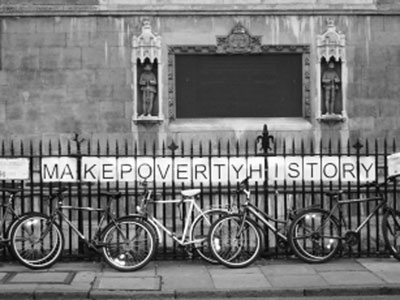All Nonfiction
- Bullying
- Books
- Academic
- Author Interviews
- Celebrity interviews
- College Articles
- College Essays
- Educator of the Year
- Heroes
- Interviews
- Memoir
- Personal Experience
- Sports
- Travel & Culture
All Opinions
- Bullying
- Current Events / Politics
- Discrimination
- Drugs / Alcohol / Smoking
- Entertainment / Celebrities
- Environment
- Love / Relationships
- Movies / Music / TV
- Pop Culture / Trends
- School / College
- Social Issues / Civics
- Spirituality / Religion
- Sports / Hobbies
All Hot Topics
- Bullying
- Community Service
- Environment
- Health
- Letters to the Editor
- Pride & Prejudice
- What Matters
- Back
Summer Guide
- Program Links
- Program Reviews
- Back
College Guide
- College Links
- College Reviews
- College Essays
- College Articles
- Back
Past Influencing the Present
Famous German philosopher Friedrich Nietzsche once said, “The future influences the present just as much as the past.” This quotation validates my idea that events from the past can influence people in a way knowing that history repeats itself.
Humanity has many encounters of history repeating itself. First, every single civilization and country that has ever existed has eventually fell. The longest of which was the Roman Empire, who lasted for almost 1,500 years. To put that into perspective, the United States has only existed as an independent country for 239 years. Also, I have noticed that most civilizations have three major time periods. They rise, they have their “golden years,” then they slowly start to fall, until they are completely gone. If you think about the history of Ancient Greece, you will see the pattern. If you put the template into the history of Ancient Rome, you will see the pattern.
Second, genocide and terrorism seem to repeat themselves through time. On September 11th, 2001, the Islamic extremist group al-Qaeda made a perfect example of history duplicating itself. At 8:45 am, a Boeing 767 carrying 20,000 gallons of highly flammable jet fuel slammed into the north tower of the World Trade Center in New York City, instantly killing hundreds of people. 18 minutes later, a twin 767 appeared out of the clouds and smashed into the other tower. While I was too young to know was happening at the time, I knew a terrible thing happened when I visited the September 11th Memorial last summer in downtown Manhattan. The bustling, energetic New York City seemed to fade away and slow down the closer you got to the monument. Everybody was quiet and peaceful, paying their respects for the people lost on the tragic day.
The Holocaust was one of the most severe genocide’s in history, where the Germans wiped out almost all of the Jews in Europe. The Jewish population still has not recovered yet, as you can see on the graph (left). It took the Germas four and a half years to massacre 6,000,000 Jews and 1,000,000 Gypsies. From April 1942 to November 1942, the Germans had the most efficient time period, killing 2,500,000 people. At their peak, the German’s were killing up to 6,000 Jews a day.
If we don't learn history, it is bound to repeat itself.
Next, I believe that events from the past can influence the present in a very subliminal way - you may have long forgotten about it or you may not even been born yet. In my case, global warming has been like this for me. I know that the Earth is warming up, but it is always in the back of my mind. The levels of greenhouses gases in the atmosphere have jumped 33% since the industrial revolution (beginning in 1760) and scientists know who is causing it - us. They also know why - greenhouse gasses like carbon dioxide are being trapped in Earth’s atmosphere, creating an ever expanding blanket of heat between us and space. Icecaps are melting, sea levels are rising, and the weather is becoming more extreme.
Second, the invention of the telephone definitely influenced people in a subliminal way. People usually take the phone for granted, and don’t even think about the time and effort the inventor, Alexander Graham Bell, put into making it. Because of the telephone, people have the ability to communicate with others without necessarily meeting in person.
It is obvious that the past influences the present in many ways, but how does the future influence the present?

Similar Articles
JOIN THE DISCUSSION
This article has 0 comments.

humanities classes, we explored how events from the past influence the present. We interviewed our
parents, our classmates and local senior citizens to gather examples, and we also found ideas from our
study of Rome, Ancient Africa, the Renaissance, the play Macbeth, and the novel Touching Spirit Bear. We
also thought about our own lives and personal histories for examples. For our final exam, our teachers
asked us to choose an authentic audience for our essay instead of just giving it to them for a grade. I've
chosen to send my work to you because I think it would fit in your magazine. Thank you for considering it.